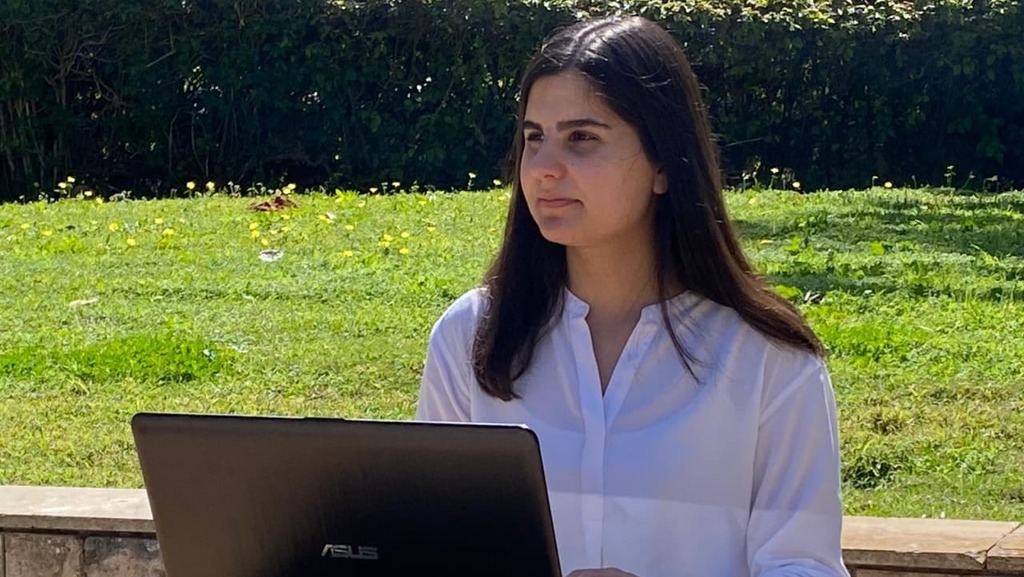Students at a number of universities and institutions of higher education across Israel returned to class for in-person studies Sunday morning, after a year of mostly remote sessions via Zoom.
According to the outline approved by the coronavirus cabinet, returning students are required to present a certificate showing full vaccination against coronavirus or that they have recovered from COVID-19 or a new negative test. Staff and faculty, however, are exempt from this requirement.
The number of students in each lecture hall will not exceed 75% of the site's maximum occupancy, while large halls will hold no more than 300 people.
The Hebrew University of Jerusalem, Bar Ilan University in Ramat Gan and the university at the West Bank settlement of Ariel was only allowing physics, chemistry and biology students to return, as they are required to work in a lab to continue their studies.
The rest of the students at these three universities were expected to return after the Passover holiday in April.
Natan Rahat, a third-year chemistry student at the Hebrew University is one of those who was finally returning to in-person studies after a year of remote learning.
“Learning via Zoom is difficult. On campus you study with other people, walk around in the open air - you are active. At home, you need to concentrate for hours at the computer,” he said.
Also returning was Karin Siman Tov, a first-year law student at Bar Ilan University.
“The first semester had a lot of introductory courses which were not always interesting and learning them via Zoom sometimes made them particularly challenging,” she said.
The long period of remote learning prompted several studies that sought to understand the effects of the coronavirus pandemic on the behavior of those who were forced to learn away from their classmates and in a disconnected manner.
One such study was conducted by Dr. Tali Gazit, a senior faculty member at the Department of Information Science at Bar-Ilan University. Her research involving 550 students showed that just 30% said their remote learning experience was positive, while 40% described it as negative.
Other research by Prof. Yair Amichai-Hamburger, Dr. Tal Azran and Dr. Tsahi Hayat at the Interdisciplinary Center in Herzliya showed that extroverted students found the lack of human contact caused feelings of loneliness and dissatisfaction with their studies to a greater degree than introverted students.




